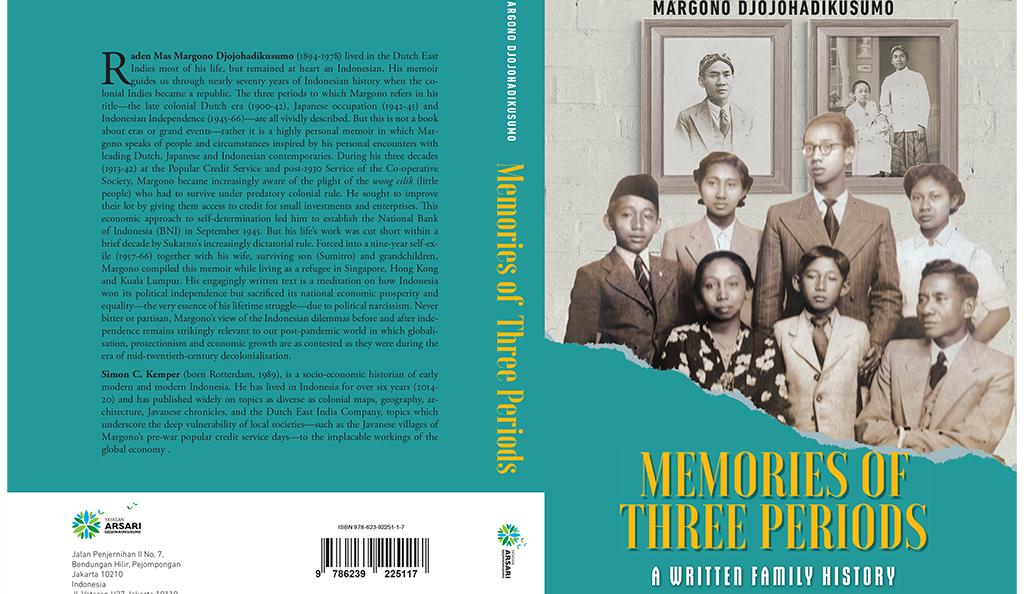Margono Djojohadikusumo: translated, Simon C. Kemper
Tahun 2020
Raden Mas Margono Djojohadikusumo (1894-1978) lived in the Dutch East
Indies most of his life, but remained at heart an Indonesian. His memoir
guides us through nearly seventy years of Indonesian history when the co-
lonial Indies became a republic. Th e three periods to which Margono refers in his
title—the late colonial Dutch era (1900-42), Japanese occupation (1942-45) and
Indonesian Independence (1945-66)—are all vividly described. But this is not a book
about eras or grand events—rather it is a highly personal memoir in which Mar-
gono speaks of people and circumstances inspired by his personal encounters with
leading Dutch, Japanese and Indonesian contemporaries. During his three decades
(1913-42) at the Popular Credit Service and post-1930 Service of the Co-operative
Society, Margono became increasingly aware of the plight of the wong cilik (little
people) who had to survive under predatory colonial rule. He sought to improve
their lot by giving them access to credit for small investments and enterprises. Th is
economic approach to self-determination led him to establish the National Bank
of Indonesia (BNI) in September 1945. But his life’s work was cut short within a
brief decade by Sukarno’s increasingly dictatorial rule. Forced into a nine-year self-ex-
ile (1957-66) together with his wife, surviving son (Sumitro) and grandchildren,
Margono compiled this memoir while living as a refugee in Singapore, Hong Kong
and Kuala Lumpur. His engagingly written text is a meditation on how Indonesia
won its political independence but sacrificed its national economic prosperity and
equality—the very essence of his lifetime struggle—due to political narcissism. Never
bitter or partisan, Margono’s view of the Indonesian dilemmas before and after inde-
pendence remains strikingly relevant to our post-pandemic world in which globali-
sation, protectionism and economic growth are as contested as they were during the
era of mid-twentieth-century decolonialisation.
Simon C. Kemper (born Rotterdam, 1989), is a socio-economic historian of early
modern and modern Indonesia. He has lived in Indonesia for over six years (2014-
20) and has published widely on topics as diverse as colonial maps, geography, ar-
chitecture, Javanese chronicles, and the Dutch East India Company, topics which
underscore the deep vulnerability of local societies—such as the Javanese villages of
Margono’s pre-war popular credit service days—to the implacable workings of the
global economy

